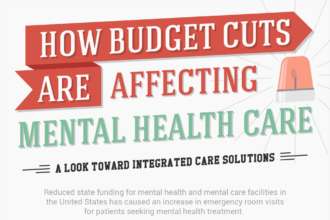In many communities around the country, hospitals are one of–if not the–largest employers. Consequently, there are undoubtedly economic issues that would befall an area if its hospital were to close. But this post isn’t about that. It’s about the healthcare consequences, and by extension, the health consequences that might arise in a community when a hospital closes its doors. The logic is fairly straightforward: If a hospital closes, it reduces access to certain types of care. If access to care is reduced, people’s health is likely to suffer.
In many communities around the country, hospitals are one of–if not the–largest employers. Consequently, there are undoubtedly economic issues that would befall an area if its hospital were to close. But this post isn’t about that. It’s about the healthcare consequences, and by extension, the health consequences that might arise in a community when a hospital closes its doors. The logic is fairly straightforward: If a hospital closes, it reduces access to certain types of care. If access to care is reduced, people’s health is likely to suffer. Like many of the things I choose to write about, however, there’s the big gap that exists between intuitive thinking and empirical evidence.
Fortunately, Karen Joynt and colleagues recently published a study in Health Affairs that helps to fill that gap. Specifically, they looked at nearly a decade worth of data on hospital closures nationwide between 2003 and 2011. Then they explored whether hospitalization rates or mortality rates were associated with these hospital closures. Surprisingly, they “found no evidence of an association between hospital closures and worsening outcomes for those living in the local community.” In fact, they found that hospital closure was possibly associated with a small reduction in readmission rates, which is a good thing.
Since this data-driven analysis seems to run contrary to what we might assume we’d observe, the next question to ask is: what does it mean? The authors offer two distinct possibilities. First, they suggest that as long as the hospitals that closed were low-quality hospitals, then it would make sense that outcomes wouldn’t suffer. And, related to that, it would actually be a net positive, because people who were going to the low-quality hospital would now be redirected to a higher quality hospital after the other hospital closed. Of course, that assumes that there is more than 1 hospital accessible to the community experiencing the closure. If the next closest hospital is a considerable distance away, then that travel barrier may reduce access and offset what would otherwise be an improvement in healthcare quality. Second, they suggest that areas experiencing a closure had an oversupply of healthcare providers, meaning that a closure could occur without restricting access, because the local healthcare system would still have adequate capacity to provide needed care. Both explanations really point towards hospital closures being the natural consequence of a well-functioning market. That’s great news, unless you happen to work at a hospital that’s closing, in which case it’s probably very little consolation. However, that underscores the bigger lesson here: We spend far too much money on healthcare in this country. Contracting the size of the healthcare industry to save money can be done in ways that increase efficiency and don’t harm patient outcomes, but that is no guarantee that employees of the healthcare sector won’t be directly–and negatively–affected. After all, what some call healthcare expenditures, others call income. And that maxim is precisely what has made meaningful health reform and cost-control efforts so difficult.








